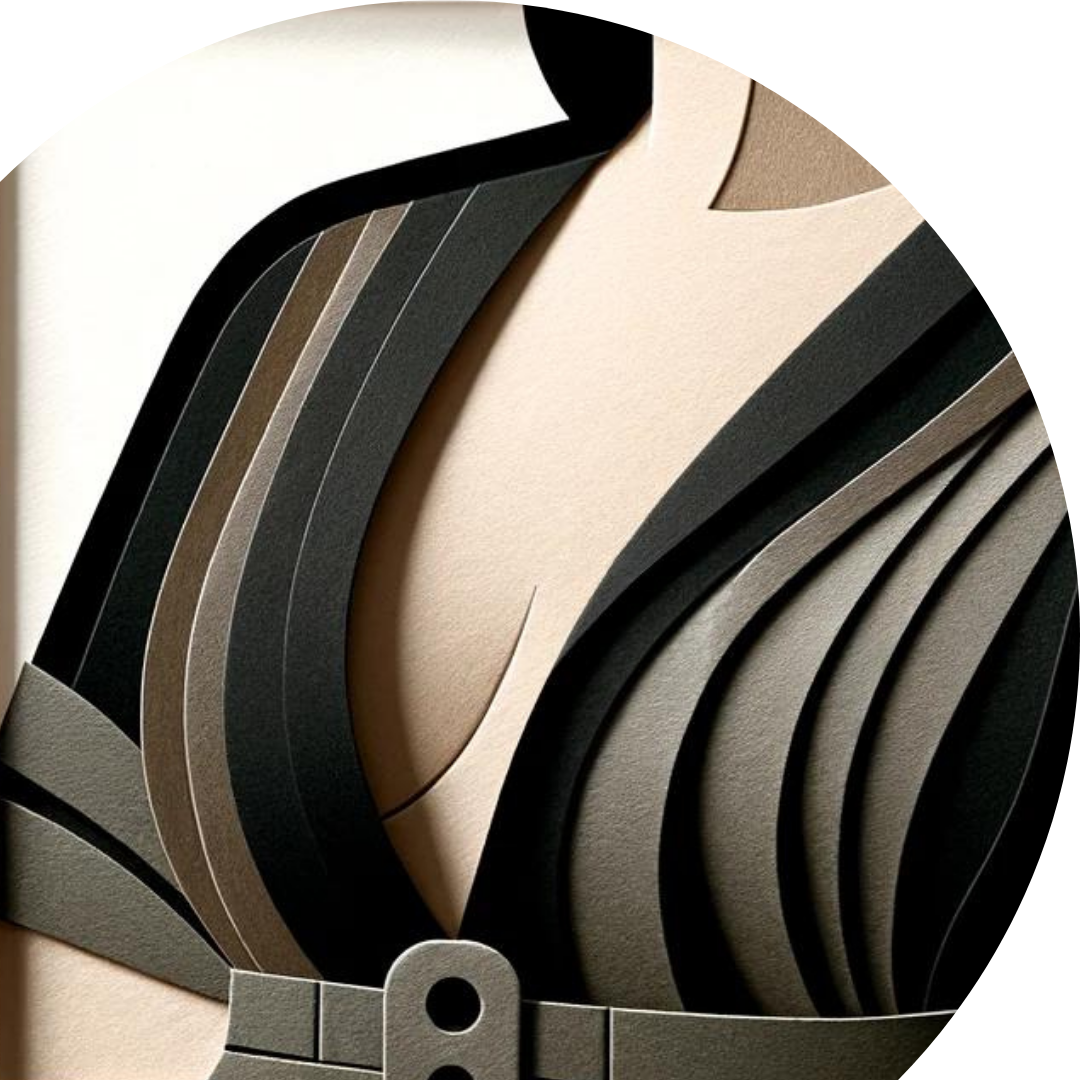No matter what your size and shape, we can give you the look you've always wanted.

No matter what your size and shape, we can give you the look you've always wanted.

At Pure Aesthetics, we understand the challenges that large breasts can bring, from physical discomfort to difficulties in daily life. Our surgeons perform breast reduction surgery in Sydney with a focus on patient care and individual needs.

Dr Steve Merten, MBBS, FRACS:
Education and Training:
Breast reduction, or reduction mammaplasty, is a surgical procedure that aims to reduce breast size and reshape them. It may help individuals experiencing physical discomfort or other concerns related to larger breasts, including:
At Pure Aesthetics, our experienced breast reduction surgeons in Sydney utilise techniques such as “short-scar” or “lollipop” methods. These approaches aim to reduce visible scarring where possible, while focusing on reshaping the breasts in a manner tailored to the individual.

Our clinic is known for:
We aim to provide a supportive environment where your concerns are heard, and every aspect of your surgery is carefully planned.

Breast reduction surgery at Pure Aesthetics involves:
Our surgeons will recommend the most suitable technique based on your anatomy and goals, whether it’s the “anchor scar” method for larger reductions or the “short-scar” approach for minimal scarring.
The procedure is performed under general anaesthesia at accredited facilities in Sydney, ensuring the highest standards of care.

Your recovery is an essential part of the journey, and we’ll support you every step of the way. Here’s what to expect:
Our team is available to answer any questions you have during your recovery.
Out-of-pocket expenses for breast reduction surgery in Sydney start at $12,300, including surgeon, anaesthetist, and hospital fees for insured patients. Medicare and private health insurance rebates may apply for eligible individuals.
A personalised quote will be provided during your consultation after assessing your unique needs and creating your treatment plan.
During your consultation at Pure Aesthetics, your surgeon will:
This is your opportunity to ask questions and discuss your expectations.
If you are considering breast reduction surgery, contact Pure Aesthetics to schedule a consultation with one of our experienced surgeons in Sydney. Our team is here to provide you with personalised advice tailored to your individual needs.
Abdominoplasty + Lipectomy surgery by @dr.stevemerten
All surgery carries risks and requires a recovery period and post-operative care regime including wearing of surgical garments. More information is available from the relevant procedure page on our website.
Dr Steven Merten is a Specialist Plastic Surgeon – AHPRA Registration: MED0001155669
.
.
.
.
.
#Abdominoplasty #BodyAfterBaby #PostPregnancyBody #CosmeticSurgery #PostPregnancyRecovery #BodyContouring #PlasticSurgerySydney #SydneyCosmeticSurgery #AbdominoplastySydney #SkinTightening #DiastasisRecti #MuscleRepair #PostpartumFitness #PregnancyChanges #SurgicalBodyContouring #AestheticSurgery #SurgicalRecovery #SelfCare #BoardCertifiedSurgeon #CosmeticProcedures #WomensHealth #CoreStrength #PostpartumSupport #SelfLove #Aestheticians #PlasticSurgeryAustralia #MacquarieUniversity #SydneyPlasticSurgeon #SydneyAesthetician

All Dr Merten’s dressings are waterproof so yes, you can shower. However, we don’t recommend standing under hot, hot water. This could cause dilation of the blood vessels and lead to complications. Keep your showers brief and warm not hot. Best to aim the shower head at your back and allow water to dribble down the front.
All surgery carries risks and requires a recovery period and post-operative care regime including wearing of surgical garments. More information is available from the relevant procedure page on our website.
Dr Steven Merten is a Specialist Plastic Surgeon – AHPRA Registration: MED0001155669
.
.
.
.
.
#BoardCertifiedSurgeon #PlasticSurgeryAustralia #ExpertPlasticSurgeon #CosmeticSurgery #PlasticSurgeryExperts #ASPSMember #ASAPSPlasticSurgeon #RACSSurgeon #CosmeticSurgeryAustralia #PlasticSurgeonSydney #CosmeticPlasticSurgery #BoardCertifiedPlasticSurgeon #RACSPlasticSurgeon #ASPSCertified #ASAPSAccredited #SydneyPlasticSurgery #BreastAugmentationAustralia #Rhinoplasty #LiposuctionAustralia #ANZPATHMember #WPATHCertified #AestheticSurgerySpecialist #CosmeticPlasticSurgeon #CosmeticSurgeon #AestheticPlasticSurgeon #AestheticPlasticSurgeons #AestheticPlasticSurgeonAustralia #AestheticPlasticSurgeonSydney #PureAesthetics

Breast Augmentation surgery by @dr.stevemerten
All surgery carries risks and requires a recovery period and post-operative care regime including wearing of surgical garments. More information is available from the relevant procedure page on our website.
Dr Steven Merten is a Specialist Plastic Surgeon – AHPRA Registration: MED0001155669
.
.
.
.
.
#BreastAugmentationSydney #CosmeticSurgeryAustralia #BreastSurgery #Implants #SydneyCosmeticClinic #BreastSurgeryFacts #SiliconeImplants #BreastImplantMaintenance #BreastSurgeryAustralia #PlasticSurgeryConsult #BreastImplantDurability #SydneyPlasticSurgeon #AestheticMedicine #BreastSurgeryInfo #PlasticSurgeryEducation #BreastSurgeryRecovery #AustralianSurgeons #SydneySurgeons #MacquarieUniversity #PlasticSurgeons #PlasticSurgeonsAustralia #SpecialistTopPlasticSurgeon #CosmeticPlasticSurgeon #CosmeticSurgeon #AestheticPlasticSurgeon #AestheticPlasticSurgeons #AestheticPlasticSurgeonAustralia #AestheticPlasticSurgeon

Whether due to pregnancy, weight loss, or ageing, abdominoplasty is a powerful surgical option to remove excess skin and tighten the abdominal area. But there’s one critical factor that can influence your results—weight stability.
Why weight matters . . .
Abdominoplasty outcomes are most successful when your weight is stable before and after the procedure. Significant weight gain post-surgery can stretch the newly tightened skin and abdominal wall, potentially undoing some of the benefits. On the other hand, dramatic weight loss can lead to new skin laxity, reducing the firmness and contour that abdominoplasty was meant to achieve.
Abdominoplasty isn`t just about what happens in the operating room. They’re about long-term lifestyle alignment. Maintaining a consistent, healthy weight is essential for preserving your surgical results and overall body contour.
Want to know more about the role of weight stability in achieving optimal results? Link in bio.
.
.
.
.
.
All surgery carries risks and requires a recovery period and post-operative care regime including wearing of surgical garments. More information is available from the relevant procedure page on our website.
Dr Steven Merten is a Specialist Plastic Surgeon – AHPRA Registration: MED0001155669
#Abdominoplasty #BodyContour #BodyContourSurgery #WeightStability #CosmeticSurgeryAustralia #SurgicalResults #PostWeightLossSurgery #PlasticSurgeryEducation #BodyTransformation #AestheticSurgery #PostSurgeryWellness #SurgeryPlanningTips #PostSurgerySupport #SurgicalConsultation #SydneyTopSurgery #TopSurgeryOptions #PlasticSurgery #CosmeticSurgery #PlasticSurgeon #CosmeticProcedures #CosmeticSurgeryCenter #PlasticSurgeryBlog #PureAesthetics #PlasticSurgeryAustralia #MacquarieUniversity #SydneyPlasticSurgeon #PlasticSurgeonSydney #SydneyAesthetician #PureAestheticsSydney

Breast Reduction surgery by @dr.stevemerten
All surgery carries risks and requires a recovery period and post-operative care regime including wearing of surgical garments. More information is available from the relevant procedure page on our website.
Dr Steven Merten is a Specialist Plastic Surgeon – AHPRA Registration: MED0001155669
.
.
.
.
.
#BreastReduction #PlasticSurgery #SurgicalInnovation #BreastSurgery #PlasticSurgeryEducation #BreastSurgeryAustralia #QualifiedSurgeons #SurgicalOptions #PlasticSurgeryEducation #BrisbanePlasticSurgery #SurgicalAwareness #PlasticSurgery #Selfcare #Selflove #CosmeticSurgery #PlasticSurgeon #CosmeticProcedures #SteveMerten #PlasticSurgeryBlog #PureAesthetics #Aestheticians #PlasticSurgeryAustralia #MacquarieUniversity #SydneyPlasticSurgeon #PlasticSurgeonSydney #SydneyAesthetician #PureAestheticsSydney

Fasting means not eating or drinking (including water) for a set period before surgery, usually 6–8 hours. This prevents food or liquid from entering your lungs while you`re under anaesthesia, which can be dangerous. Chewing gum is also not allowed, as it increases saliva and stomach acid.
All surgery carries risks and requires a recovery period and post-operative care regime including wearing of surgical garments. More information is available from the relevant procedure page on our website.
Dr Steven Merten is a Specialist Plastic Surgeon – AHPRA Registration: MED0001155669
.
.
.
.
.
#BoardCertifiedSurgeon #PlasticSurgeryAustralia #CertifiedPlasticSurgeon #CosmeticSurgery #BoardCertifiedPlasticSurgeon #PlasticSurgeryInfo #CosmeticSurgeryInfo #SurgeryVerification #PlasticSurgeryEducation #KnowYourSurgeon #PlasticSurgeryStandards #CertifiedCosmeticSurgeon #PlasticSurgeryGuide #CosmeticProcedure #PlasticSurgeryConsultation #PlasticSurgerySupport #PlasticSurgeryTips #BoardCertifiedDoctors #AustralianPlasticSurgery #PlasticSurgeryAwareness #FindYourSurgeon #VerifiedPlasticSurgeon #CertifiedSurgeonAustralia #AestheticPlasticSurgeon #AestheticPlasticSurgeons #AestheticPlasticSurgeonAustralia #AestheticPlasticSurgeonSydney #PureAesthetics

Gender Affirming Bilateral Mastectomy by @dr.stevemerten
All surgery carries risks and requires a recovery period and post-operative care regime including wearing of surgical garments. More information is available from the relevant procedure page on our website.
Dr Steven Merten is a Specialist Plastic Surgeon – AHPRA Registration: MED0001155669
.
.
.
.
.
#FTM #TopSurgery #FemaleToMale #ChestSurgery #GenderAffirming #SurgicalOptions #PlasticSurgeryEducation #FTMSurgery #Trans #TransHealth #BrisbanePlasticSurgery #SurgicalAwareness #TopSurgeryOptions #PlasticSurgery #TransSurgery #SteveMerten #CosmeticSurgery #PlasticSurgeon #CosmeticProcedures #CosmeticSurgeryCenter #PlasticSurgeryBlog #PureAesthetics #Aestheticians #PlasticSurgeryAustralia #MacquarieUniversity #SydneyPlasticSurgeon #PlasticSurgeonSydney #SydneyAesthetician #PureAestheticsSydney #LGTBQIA

Take back your power!
.
.
.
.
.
All surgery carries risks and requires a recovery period and post-operative care regime including wearing of surgical garments. More information is available from the relevant procedure page on our website.
Dr Steven Merten is a Specialist Plastic Surgeon – AHPRA Registration: MED0001155669
#lalahdelia #selfcare #takingbackpower #selflovetip #selfcarequote #growth #motivationalquote #sydney #selflove #positivevibesonly #embraceyourself #selfworth #mindbodysoul #selfloveiskey #happinesswithin #selfdiscovery #metime #selfbelief #personalgrowth #selflovequotes #skincare #cosmeticclinic #cosmeticprocedures #bautycare #pureaesthetics #aestheticians #plasticsurgeryaustralia #macquarieuniversity #sydneyplasticsurgeon #sydneyaesthetician

Abdominoplasty surgery by @dr.stevemerten
All surgery carries risks and requires a recovery period and post-operative care regime including wearing of surgical garments. More information is available from the relevant procedure page on our website.
Dr Steven Merten is a Specialist Plastic Surgeon – AHPRA Registration: MED0001155669
.
.
.
.
.
#Abdominoplasty #BodyAfterBaby #PostPregnancyBody #CosmeticSurgery #PostPregnancyRecovery #BodyContouring #PlasticSurgerySydney #SydneyCosmeticSurgery #AbdominoplastySydney #SkinTightening #DiastasisRecti #MuscleRepair #PostpartumFitness #PregnancyChanges #SurgicalBodyContouring #AestheticSurgery #SurgicalRecovery #SelfCare #BoardCertifiedSurgeon #CosmeticProcedures #WomensHealth #CoreStrength #PostpartumSupport #SelfLove #Aestheticians #PlasticSurgeryAustralia #MacquarieUniversity #SydneyPlasticSurgeon #SydneyAesthetician

Did you know that Facial Feminisation Surgery is more than just surface-level changes?
It starts with one`s bone structure. The shape and density of one`s facial bones play a crucial role in determining the techniques used to achieve a softer, more traditionally feminine appearance.
These key factors are considered in surgical planning:
◽ Frontal Bone Shape
◽ Jaw and Chin Structure
◽ Cheekbone Contours
◽ Mandibular Angle
◽ Nasal Structure
Every face is unique, and so is every Facial Feminisation Surgery procedure. Want to learn more about the key factors and Facial Feminisation Surgery in-detail?
Link in bio to head to our blog.
.
.
.
.
.
All surgery carries risks and requires a recovery period and post-operative care regime including wearing of surgical garments. More information is available from the relevant procedure page on our website.
Dr Steven Merten is a Specialist Plastic Surgeon – AHPRA Registration: MED0001155669
#FacialFeminisationSurgery #BoneStructure #FacialSurgery #Jawline #MandibleReduction #Feminisation #FeminisationSurgery #TransGenderSurgery #GenderAffirming #PlasticSurgery #TransSurgery #SurgicalTransformation #FacialContouring #TransWoman #CosmeticSurgery #PlasticSurgeon #CosmeticProcedures #CosmeticEnhancement #CosmeticSurgeryCenter #PlasticSurgeryBlog #PureAesthetics #Aestheticians #PlasticSurgeryAustralia #MacquarieUniversity #SydneyPlasticSurgeon #PlasticSurgeonSydney #SydneyAesthetician #LGTBQIA
